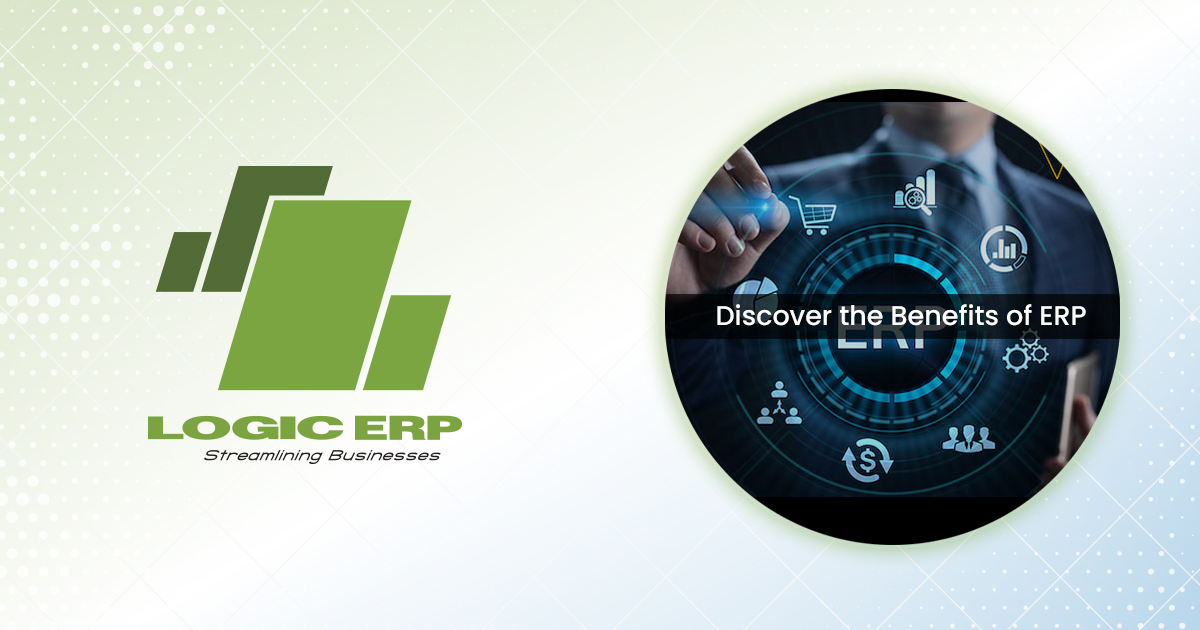

If you’re considering adopting an ERP system, you’re likely eager to understand how this technology can benefit your business. ERP offers a wide array of capabilities that can transform your operations and drive growth. Those are a few of the key reasons to invest in ERP software, but we’re here to help you understand what this technology can do for a business like yours. What capabilities will this system give your business that it doesn’t currently have?
In this blog, we will explore 15 key advantages of implementing ERP, shedding light on how this technology can revolutionize your business and propel it towards greater success.
- Streamlined Processes:
ERP automates and optimizes business processes, reducing manual intervention and improving overall efficiency. From inventory management to financial reporting, ERP streamlines operations for increased productivity.
2. Centralized Data Management:
An ERP system serves as a centralized database, consolidating data from different departments into a single platform. This eliminates data silos and ensures data consistency across the organization.
3. Real-Time Insights:
With ERP, you gain access to real-time data and key performance indicators (KPIs). This enables swift decision-making based on accurate and up-to-date information.
4. Enhanced Reporting and Analytics:
Advanced MIS reporting and analytics capabilities, providing actionable insights into business performance. This data-driven approach aids in strategic planning and informed decision-making.
5. Improved Productivity:
By automating repetitive tasks and reducing manual efforts, ERP enhances employee productivity. This allows your workforce to focus on value-added activities and innovation.
6. Cost Reduction:
ERP identifies inefficiencies, optimizes resource allocation, and reduces operational costs. Lower inventory carrying costs, improved procurement processes, and reduced manual errors contribute to overall cost reduction.
7. Better Customer Relationship Management:
Integrated CRM features in ERP enable businesses to manage customer interactions effectively. Personalized service and faster issue resolution lead to increased customer satisfaction and loyalty.
8. Inventory Optimization:
Inventory management software helps to maintain optimal stock levels, preventing stockouts and reducing excess inventory costs.
9. Regulatory Compliance:
ERP systems often come with built-in compliance features, helping businesses adhere to industry regulations and standards. This ensures your organization stays compliant and avoids penalties.
10. Business Scalability:
As your business grows, ERP solutions can scale to accommodate increased data volumes and transactional demands. This flexibility supports your expansion plans seamlessly.
-
Data Security:
ERP systems implement robust security measures to protect sensitive business data from unauthorized access. Data security features ensure data integrity and safeguard against cyber threats.
12. Enhanced Collaboration:
ERP facilitates seamless communication and collaboration across teams and departments. This improves coordination, accelerates problem-solving, and fosters a culture of teamwork.
13. Mobile Accessibility:
Many ERP systems offer mobile applications, enabling employees to access critical data and perform tasks from anywhere. This mobile accessibility enhances flexibility and remote work capabilities.
14. Data-Driven Decision Making:
With ERP providing accurate and relevant data, your organization can make data-driven decisions. This reduces reliance on intuition and increases the likelihood of successful outcomes.
15. Business Intelligence:
ERP systems offer advanced business intelligence tools, enabling organizations to gain valuable insights from data analysis. This empowers you to identify opportunities and anticipate market trends.
Conclusion:
Implementing an ERP system offers a multitude of advantages that can revolutionize your business. From streamlined processes and centralized data management to real-time insights and enhanced collaboration, ERP empowers your organization to operate efficiently and make informed decisions. Embrace ERP to drive growth, reduce costs, and stay ahead in a competitive business environment. As technology continues to evolve, ERP remains a cornerstone for sustainable success in today’s dynamic market.

